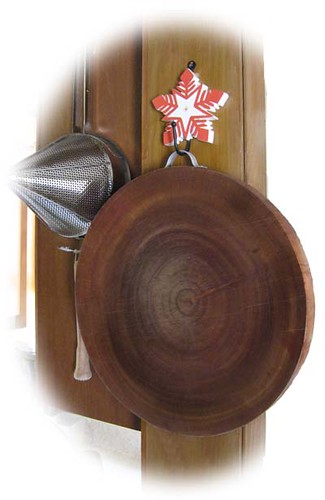He Duped Me!

The 22nd Sunday in Ordinary Time
Today’s Readings: [Click here]
In our first reading today, the prophet Jeremiah cries out to God: You duped me and I let myself be duped! (Jer 20:7) The Hebrew word for “duped” (פּתה • paw-thaw´) has the sense that Jeremiah was deceived by being flattered and enticed by God… almost in a playful way. I picture this much the way that you play with a small child: delighting them by pulling a quarter out of their ear, or sliding your palm over your hand to make your thumb disappear, or pretending to steal their nose. Of course, this kind of playfulness is based on love… and as the child gets older, the loving deceptions may take more subtle forms: using reverse psychology, playing games to make them eat their broccoli, and so on. We do these silly things to teach children things, to keep them healthy, to give them self-confidence and to help them to become better people.
Apparently God, our heavenly Father, doesn’t mind resorting to the same kind of playful tricks. And Jesus told his friends that they had to be clever as serpents… so it seems that this kind of gentle trickery is a good life skill to have!
But interestingly, when life gets serious, the Lord shows us that it’s best to deal with people and situations in a straightforward manner. This is not the time for deception or dupery or sugar-coating.
Jesus’ relationship with his disciples reached this point when he told them: No longer do I call you slaves, but I have called you friends (Jn 15:15). So today in the gospel he says, “Look, I’m going to die.” Peter replies, “Bite your tongue!” It seems he still wants the sugarcoating.
But Jesus comes back, “No, Peter. I have to tell you this straight out. It’s too important. My love for you is so strong that I want you to know the path to God. No more parables, no word games, just the sure and certain truth, which is this: Take up your cross. Don’t be afraid. Follow me.”
We get to see a new side of Christ… a rather unsettling side. And of course, we’ve got lots of questions, and so did the apostles. The second time Jesus brought up this going-to-Jerusalem-to-die business, the Scriptures say flat out, The apostles did not understand but they were afraid to ask him (Mk 9:32). Somehow, life was dishing out a new and frightening twist and they didn’t know what to do about it. We probably wouldn’t either.
Listen again to Jesus’ words: Don’t be afraid. Follow me. It will be all right.
Most of us are scared to death to believe and take this advice. We are afraid and we’re not willing to move forward after the Lord—so believe it or not, we suffer more than we have to.
I’ve been reading a beautiful book by a doctor who specializes in working with cancer patients. She takes a holistic approach to healing, so she brings in a lot of counseling and spirituality into her work. This physician tells the story of several of her patients who had the same reaction to learning they had cancer: they felt overwhelmed that they were being chased by a beast from the darkness that wanted to suck them in and devour them. So they responded by running away from the beast and the darkness, by pushing themselves, by refusing to give in. And in each case, the patients got to a point where they were absolutely exhausted and weary of the good fight—but they were even more afraid of giving up.
The doctor asked them what would happen if they just allowed themselves to be drawn by the beast into the darkness and eaten. The patients had tried everything else and in time they figured if their time was up, they may as well try this, too.
Well, each and every one of them told the same story. Floating into the darkness was not cold or scary. Being eaten up was not painful. It was warm and comforting and peaceful… it felt like they were being supported and loved and were safe… but they didn’t know this until they let go.
In fact, the experience transformed these people. As odd as it sounds, they found light in the darkness.
You don’t have to be dying to have this kind of discovery or epiphany. The gospel today is the end of Matthew, chapter 16. Did you realize that chapter 17 starts out with the story of the Transfiguration? Just a coincidence? I don’t think so.
By not being afraid—by taking up our cross and following the Lord—we too can get ourselves to a far better and safer place than whatever tough spot we find ourselves in. We can see God and other people in a wonderful new light. We can tear down the walls of hatred, suspicion and jealousy that separate us from the love of others… we can let out the demons that have kept us locked up in fear… we can experience the beauty and joy of the journey of life, no matter how it appears through our earthly eyes before we let go.
Come on, Lord. Dupe us all as you did to Jeremiah. And we pray that we will allow ourselves to be duped. Amen.



